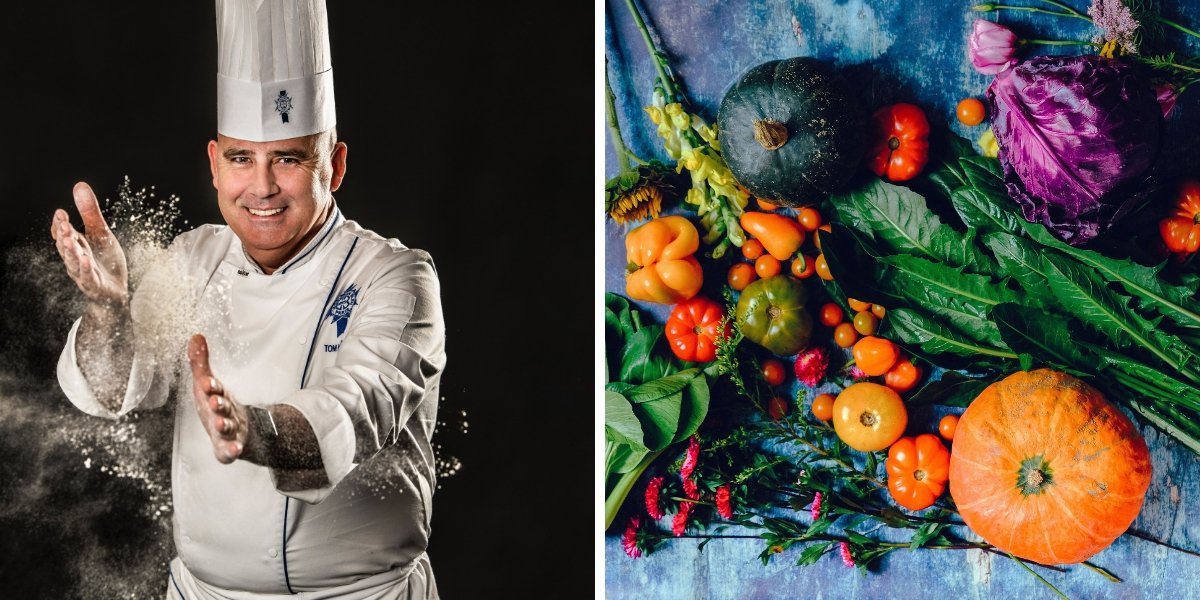-
Locations
Campuses in Europe & Middle EastCampuses in The AmericasCampuses in AsiaLe Cordon Bleu International
- Online Learning
Contact your local representative - Our Story
- Programmes
- Brochures
- News & Events
- Contact
- Find Course

With at least 40 percent of the food purchased as stock for restaurants, cafes and food service businesses going to waste[1], and an estimated 7.3 tonnes of food thrown out by Australians each year[2], food waste generates eight percent of the greenhouse gas emissions contributing to global warming[3].
Le Cordon Bleu Technical Director (and acclaimed Chef), Tom Milligan, believes restaurants and caterers have a greater obligation to help combat these statistics. “As those working within the food service industry, we have an obligation to foster a sustainable industry with minimal impact. We as businesses need to incorporate an ethical food philosophy and social responsibility charter,” Tom said.
“Poor stock management, storage and handling practices are some of the biggest drivers of waste in our industry, which is why sustainability practices should be integrated across the hospitality industry now – not only to minimise environmental impact but food waste reduction strategies can help improve profit margins. Recycling and the use of biodegradable and compostable packaging is a must. Businesses should also be considering a carefully curated menu which can help with stock management to minimise food spoilage.”
In recent years, sustainability has been top of mind in the hospitality industry and there are a lot of companies out there adopting incredibly innovative practices to reduce the problem. However, the industry still has a long way to go. Food waste is an ongoing issue but one that all hospitality operators, cooks and chefs should work toward minimising.
Tom says the institute’s cooking philosophy has always had the notion of sustainability steeped into its teaching. “Sustainable food preparation and cooking is at the heart of the Le Cordon Bleu food philosophy and is one of the foundation stones of our teaching."
“We educate our students to ‘think global by acting local’ and remind them that by adopting practices to minimise food waste means minimum harm and maximum enjoyment for everyone. For example, some of our schools have kitchen gardens and we compost our organic waste. We are very conscious of the food miles and always try to buy locally grown and sourced ingredients from sustainable sources."
Le Cordon Bleu Australia is proud to be at the forefront of ethically responsible food preparation, and by incorporating sustainable methods in the classroom, students will help reduce the impact that food waste currently has on the world.
With institutes in Adelaide, Brisbane, Melbourne & Sydney (and the newest Le Cordon Bleu institute in Brisbane celebrating its first graduation in October), a steady stream of alumni continue to take Le Cordon Bleu’s sustainability philosophy into the hospitality industry, making positive change in their workplaces, businesses and home kitchens.
Copyright © 2026 Le Cordon Bleu International B.V. All Rights Reserved.